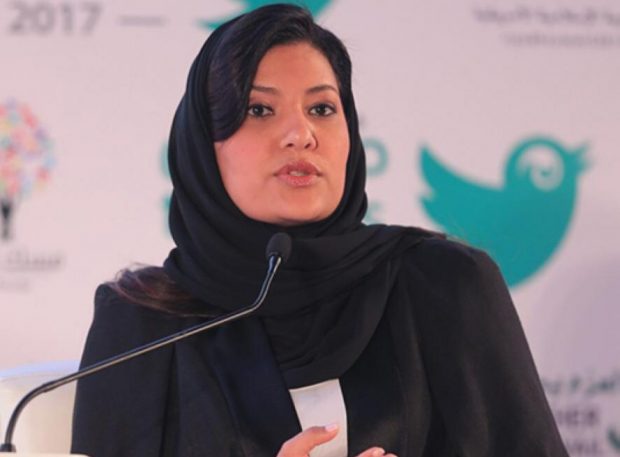Saudi Arabia removes travel restrictions for women

Princess Reema Bandar Al Saud
Riyadh: Saudi Arabia’s ambassador to the U.S. Princess Reema Bandar Al Saud has hailed the decision to allow Saudi women to apply for passports and travel abroad without the need for the approval of a custodian.
The decision announced this week is seen as a great leap for the empowerment of Saudi women who could not travel outside the country without the expressed approval of a male custodian who could be a husband, father or brother.
“I am elated to confirm that KSA [Kingdom of Saudi Arabia] will be enacting amendments to its labor and civil laws that are designed to elevate the status of Saudi women within our society, including granting them the right to apply for passports and travel independently,” Reema posted on her Twitter account.
“These developments have been a long time coming. From the inclusion of women in the consultative council to issuing driving licenses to women, our leadership has proved its unequivocal commitment to gender equality.”
According to Reema, these new regulations “are history in the making.”
“They call for the equal engagement of women and men in our society. It is a holistic approach to gender equality that will unquestionably create real change for Saudi women,” she posted.
“Women have always played an integral role in our country’s development, and they will continue to do so moving forward on equal footing with their male counterparts.”
The decision, warmly hailed by Saudi women and their supporters in the kingdom and abroad, is the latest in a series of initiatives launched by Crown Prince Mohammed bin Salman Al Saud to overhaul the conservative Saudi society, lift deep-rooted social restrictions and empower women politically, economically and socially.
The political empowerment of women was started under the late King Abdullah who allowed women to become members of the Consultative Council, the advisory body. King Abdullah in January 2013 nominated 30 women to the 150-member council, a quota that has been upheld afterwards despite the open skepticism vociferously expressed by hardliners opposed to any change of the status-quo.
In January 2018, women could attend sporting events in stadiums and in June they were allowed to drive in Saudi Arabia for the first time.
Driving was never a legal issue since there was no legislation that banned women from sitting behind steering wheels. However, it was a social issue that was upheld by conservative forces within the kingdom that wanted to treat women as second-class citizens.
The series of recent spectacular changes asserted by Prince Mohammed bin Salman have allowed women to live more independently, to take up various forms of jobs and to aspire to achieve public success across several areas. The elevation of the status of women goes along the drive to diversify the economy by creating non-oil opportunities, easing social restrictions, opening movie theaters and hosting public concerts and shows.
























































